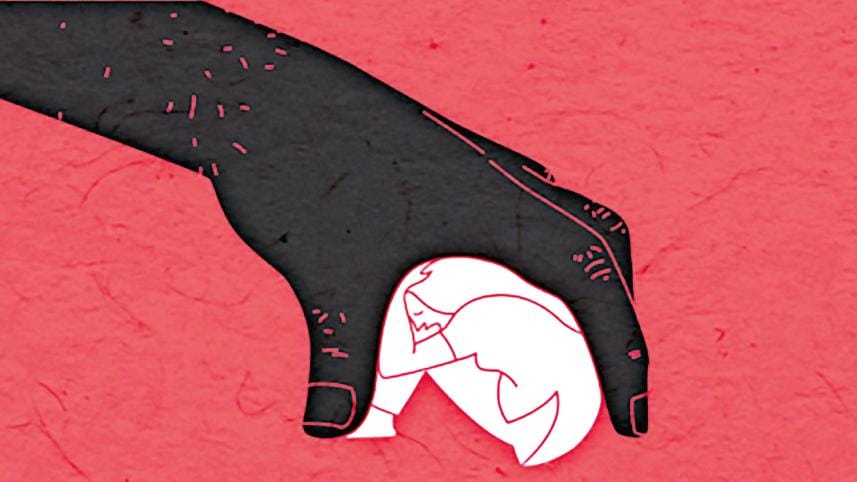The urgency of introducing anti-grooming law

On February 2, eleven-year-old Subah vanished from Mohammadpur, startling the entire country. The episode went viral as netizens started to voice their support for her rescue on social media. Fortunately, law enforcement stepped in quickly rescuing her from Naogaon where she had travelled to with an adult named Momen. They communicated with each other on the well-known social networking site Tiktok. This is an illustration of grooming, which is the term used to describe how an adult manipulates a child.
The Terminology Guidelines for the Protection of Children from Sexual Exploitation and Sexual Abuse released by the Interagency Working Group on Sexual Exploitation of Children ("Terminology Guidelines") in Luxembourg in 2016, defined grooming as "the process of establishing/building a relationship with a child either in person or through the use of the Internet or other digital technologies, to facilitate either online or offline sexual contact with that person". However, this case raises a critical legal issue—Bangladesh currently has no specific law criminalising grooming, leaving a dangerous loophole that child predators can exploit.
Many developed nations (US, UK, EU, Canada, Norway, Australia etc.) have recognised the seriousness of the issue and have enacted laws to criminalise such behaviour, preventing the abuse that may follow. However, in Bangladesh, the absence of specific enactment means that the act of grooming itself cannot be considered crime unless it is too late, making prevention difficult.
In the United Kingdom, the Sexual Offences Act 2003 provides a clear legal framework to combat child grooming. Section 15 of the Act criminalises the communication by an adult with a child under the age of 16 with sexual intent as well as the act of meeting with the child after engaging through online or offline communication. The law provides a maximum penalty of up to 10 years in prison, ensuring that offenders are prosecuted even before physical abuse occurs.
In the United States, 18 US Code § 2422(b), also known as the 'Coercion and enticement provision' prohibits any attempt to persuade, induce, or lure a minor into sexual activity. Similarly, PROTECT Act (2003) also targets sexual exploitation of children and imposes severe penalties ranging up to life imprisonment strengthens the protection even more. These provisions ensure the criminalisation of the preparatory acts that facilitate child exploitation under federal law.
Australian Criminal Code 1995 under section 474.27 categorises both online and offline grooming as criminal offenses. In Australia, communicating with a child under 16 for sexual purposes is punishable by up to 15 years in prison.
Similarly, under Section 172.1(1)(b) of the Criminal Code of Canada any act by an adult to communicate with a child under 16 years of age with the intent of facilitating sexual exploitation or abuse. The law imposes severe penalties, including imprisonment up to 14 years, ensuring that individuals engaging in grooming behavior are prosecuted before they can cause harm.
Bangladesh, however, still lacks a dedicated anti-grooming law. In Bangladesh, the Penal Code, 1860 under Sections 375 and 376 criminalise rape but do not include preparatory acts such as psychological manipulation or trust-building, which are the elements of child grooming. It means that law enforcement can only take action after an offense like rape has already been committed, rather than preventing it through legal intervention at an earlier stage.
Similarly, the Nari-O-Shishu Nirjatan Daman Ain, 2000, contains punishment for child sexual abuse, without addressing the psychological manipulation or grooming leading to the abuses. The newly introduced Cyber Protection Ordinance 2024 too does not contain any provision that explicitly defines and criminalises the act of online grooming or predatory behavior targeting minors through social media, messaging platforms or other digital media. This legal gap exposes Bangladeshi children to manipulative tactics used by predators, making it imperative for lawmakers to introduce clear legislation that defines, criminalises, and punishes grooming before it escalates to abuse. These laws, as it appears, are reactive rather than preventative, leaving a critical loophole where abusers can groom minors without facing prosecution unless physical harm occurs.
The case of Subah is a wake-up call for Bangladesh. The government must take immediate actions introducing anti-grooming laws to protect the children from the acts of online grooming. It is necessary to introduce clear legislation that defines, criminalises and punishes grooming before it escalates into abuse.
The writer is student of law, University of Chittagong.



 For all latest news, follow The Daily Star's Google News channel.
For all latest news, follow The Daily Star's Google News channel.
Comments